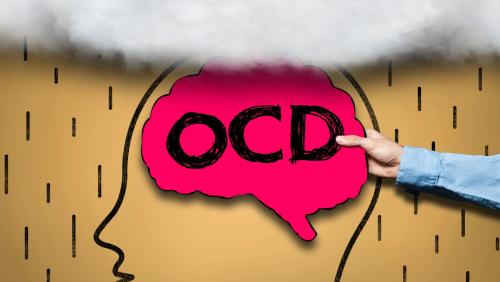Beyond Perfectionism: The Realities of OCD Problems and the Road to Recovery

Imagine a life plagued by intrusive thoughts that whisper fear and doubt, urging you to perform repetitive rituals to ward off unseen dangers. This isn't just a scene from a movie; it's the daily reality for millions struggling with Obsessive-Compulsive Disorder (OCD) and undergoing OCD treatments. While often portrayed as a quirky obsession with neatness, OCD is a complex mental health condition characterized by intrusive thoughts (obsessions) and repetitive behaviors (compulsions) that significantly impact daily life. This article aims to demystify OCD, understand its challenges, understanding obsessive-compulsive symptoms and explore the path towards managing and overcoming it.
Understanding OCD: Beyond the Stereotypes
Defining OCD
It's crucial to move beyond the simplistic image of "liking things neat." OCD, according to the Diagnostic and Statistical Manual of Mental Disorders (DSM-5), OCD is one of the mental health disorders that involves:
Obsessions: Unwanted, intrusive thoughts, urges, or images that cause distress or anxiety.
Compulsions: Repetitive behaviors or mental acts performed in response to obsessions or to prevent future discomfort.
These obsessive-compulsive symptoms must be frequent, distressing, and significantly impact daily life, ruling out substance use or another medical condition.
OCD vs. Perfectionism
While both involve wanting things "just right," key differences exist:
Thoughts: OCD: Unwanted, anxiety-provoking. Perfectionism: Driven by a desire for flawlessness and achievement.
Behaviors: OCD: Ritualistic, driven by anxiety reduction. Perfectionism: Goal-oriented, striving for excellence.
Motivation: OCD: Fear of consequences, relief from anxiety. Perfectionism: Internal standards, external validation.
Exploring Different OCD Presentations:
OCD manifests in various ways, including:
Contamination obsessions: Fear of germs or dirt, leading to excessive cleaning.
Intrusive thoughts: Unwanted, distressing thoughts about violence, harming others, or taboo topics.
Checking compulsions or compulsive behaviors: Repeatedly checking doors, appliances, or actions to prevent harm.
Symmetry and ordering obsessions: Need for things to be arranged in a specific way, leading to time-consuming rituals.
Hoarding: Difficulty discarding possessions due to perceived emotional connection or fear of future need.
Neurological Underpinnings
While the exact cause of OCD remains unknown, researchers believe it relates to brain functions involving:
Amygdala: Processes emotions, particularly fear and anxiety, potentially overactive in OCD.
Basal ganglia: Involved in habit formation and regulating behavior, may contribute to repetitive compulsions.
Serotonin: Neurotransmitter implicated in OCD, with medications targeting its reuptake showing positive effects.
The Realities of Living with OCD
Intrusive Thoughts and the Anxiety Spiral
Imagine a persistent voice whispering doubts or fears, no matter how illogical. This is the reality of intrusive thoughts. They trigger anxiety or anxiety disorder and can escalate into "fear spirals," leading to compulsions for relief.
Time Consumed, Life Disrupted
Compulsions, while offering temporary relief, become time-consuming, interfering with daily routines, work, and relationships. The constant struggle to resist and fear of consequences can be isolating and lead to missed opportunities.
Breaking the Stigma, Seeking Help
It's crucial to combat the stigma of OCD as "just being neat." It's a debilitating condition, and open discussions and understanding are essential. Seeking professional help from qualified mental health professionals experienced in OCD is vital for diagnosis and treatment plan.
The Road to Recovery: Evidence-Based Treatments
CBT: The Gold Standard
Cognitive Behavioral Therapy (CBT) is one of the most effective types of therapy treatment options for OCD, with strong scientific evidence supporting its efficacy. It is also considered as one of the standard treatments. Exposure and Response Prevention (ERP), a core principle of CBT, gradually exposes individuals to feared situations and helps them resist compulsions, breaking the anxiety-compulsion cycle.
Beyond CBT: A Spectrum of Options
Medication, primarily Selective Serotonin Reuptake Inhibitors (SSRIs), can play a supportive role alongside effective treatments and therapy. Additionally, mindfulness-based therapies can help individuals observe thoughts and urges without judgment, reducing their power. Finding the right fit with a qualified therapist who specializes in OCD treatment and utilizes evidence-based approaches is crucial.
Managing OCD and Building Resilience
Daily Strategies for Navigating Challenges
Stress Management Techniques: Patients with treatment also implement relaxation exercises, deep breathing, and mindfulness practices to manage stress, a common OCD trigger.
Healthy Habits for Resilience: Prioritize healthy sleep, regular exercise, and a balanced diet to support mental and physical well-being.
Self-Compassion and Acceptance
The Power of Self-Compassion: Another support of form of treatment is accepting intrusive thoughts and urges without judgment reduces their perceived threat. Self-compassion is key to managing OCD.
Acceptance as a Stepping Stone
Remember, recovery is a journey, not a destination. Acceptance, alongside therapy and self-care, paves the way for managing OCD and improving quality of life. It doesn't mean surrendering to thoughts or compulsions, but acknowledging their presence without judgment and focusing on effective coping mechanisms.
Finding Support and Empowerment
Support Groups and Communities: Connecting with others who understand the challenges of OCD through support groups or online communities can offer valuable support, empathy, and shared experiences.
Resources for Further Information: Utilize reputable resources like mental health organizations, OCD-specific websites, and hotlines for further information, support, and tools.
Conclusion
Overcoming OCD is possible with proper treatment and self-management strategies. The journey requires hope, resilience, and a commitment to personal growth. While intrusive thoughts and compulsions may persist, learning to manage them effectively leads to a life less consumed by fear and anxiety. Remember, you are not alone in this journey. With knowledge, support, and determination, you can reclaim control and build a fulfilling life beyond OCD.


Comments